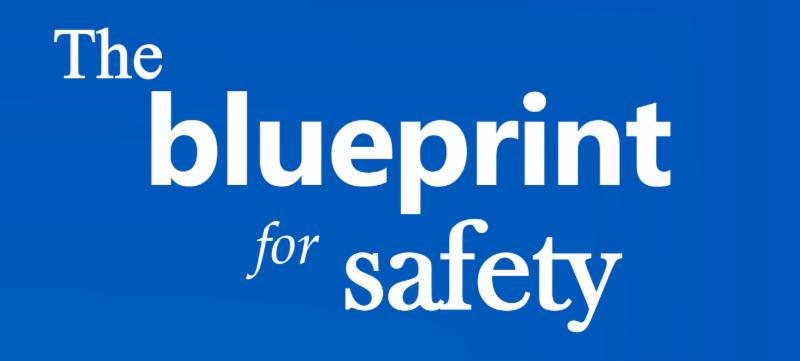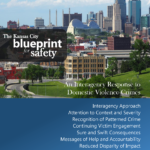
The Blueprint Bulletin provides concrete tools and information to support your work. Each issue features foundational information about the Blueprint for Safety model, updates on Blueprint communities, and ideas about how to identify and address inequities in case outcomes. Praxis can advise you on the adaptation and implementation of the Blueprint and/or provide assistance on using aspects of the Blueprint model in your community. Access our Blueprint Clearinghouse to learn more about Blueprint training, consulting, information, strategies, and research.
New Orleans’ Addresses Gaps in Language Access
Blueprint Communities in the News
Contact Us
 New Orleans’ Blueprint for Safety Utilizes Praxis Institutional Analysis to Uncover and Address Gaps in Language Access in Domestic Violence Cases
New Orleans’ Blueprint for Safety Utilizes Praxis Institutional Analysis to Uncover and Address Gaps in Language Access in Domestic Violence Cases
In 2011 the City of New Orleans, Louisiana was selected as a demonstration site for The Blueprint for Safety Adaptation Demonstration Initiative. For nearly eight years Praxis has worked closely with the Blueprint Coordinator and other partners in New Orleans to support their development and implementation of the Blueprint. Principle 6 of The Blueprint for Safety directs communities to reduce inequities in criminal justice intervention for marginalized communities. To put this principle into practice as part of their Blueprint monitoring activities, New Orleans recently conducted a Praxis Institutional Analysis to examine the experiences of people with Limited English Proficiency (LEP) who are involved in the criminal legal system through domestic violence-related cases.
The project focused specifically on how various agencies within the system are set up to address language access for people with LEP. With guidance and consultation by Praxis and Casa de Esperanza, the New Orleans Blueprint Coordinator established a team of local agencies to conduct the analysis. The team included representatives from law enforcement, community groups serving communities with LEP, and community-based domestic violence agencies. The team gathered information through a number of activities including:
- facilitating a focus group with Latinas with LEP to learn about their experiences with system intervention;
- attending police ride-alongs and court hearings to observe front line practitioners and processes regarding language access provision;
- conducting interviews with community-based bi-lingual advocates, front-line practitioners, and agency leaders about successes and challenges in language access provision; and
- completing an in-depth review of existing policies and domestic violence police reports.
The analysis revealed two overarching insights into New Orleans current response to cases involving people with LEP. First, as with many criminal legal system agencies, data tracking methods are often inaccurate or incomplete. For example, following the implementation of The Blueprint for Safety in 2014, the New Orleans Police Department (NOPD) changed their electronic reporting system to allow for tracking the need for interpreter services, but the analysis team discovered during review of these reports that officers did not consistently capture this information. Second, the quality of language access services provided by agencies varies; some agencies have a formal plan or policies in place while others do not. Lack of access to existing interpretation services, reliable technology, and limited funding and resources for improved or additional language access services hinder the system’s ability to respond to domestic violence crimes equitably, safely and meaningfully. While focused on the response to people with LEP, the analysis also revealed variability in the existence of formal policies and quality of practices in providing ASL interpretation or other accessibility services for individuals who are Deaf or Hard of Hearing. The New Orleans Blueprint Monitoring Team is actively seeking to address these key issues, which will lead to improved ability to monitor the short- and long-term impact of changes and to improved response to people with LEP.
The New Orleans Blueprint Monitoring Team identified the following concrete recommendations in response to these findings and is now working to incorporate them into their Blueprint response:
- The development and implementation of language access plans and policies in all criminal agencies.
- The development of specific guidance and training for officers on the importance of using certified interpreters over bi-lingual bystanders at the scene.
- Ensuring print materials distributed to survivors by patrol officers are available in as many languages as possible.
The New Orleans Blueprint Monitoring Team will continue to conduct further practice assessment with the criminal legal agencies, such as listening to 911 call recordings to assess for communication efficacy with callers with LEP and facilitate focus groups with practitioners from 911 and NOPD to learn about their experiences responding to and adequately helping people with LEP.
To learn more:
- Contact Praxis! We have worked with many communities to use Praxis IA to enhance their system responses to gender-based violence. We provide consultation to help you explore tools, resources, and strategies to uncover and address inequities in your system response: info@praxisinternational.org
- Tools and Resources:
- Praxis Institutional Analysis (also called The Praxis Safety and Accountability Audit)
- Language Access
- The Blueprint for Safety
- The Blueprint for Safety
- The Blueprint for Safety Principle 6: Act in ways that reduce unintended consequences and the disparity of impact on victims and offender
- The Blueprint for Safety Policy and Practice Assessment Guide
- The Blueprint for Safety
- Webinars featuring Blueprint communities, Blueprint Principle 6, and Institutional Analysis
 Blueprint Communities in the News
Blueprint Communities in the News

Kansas City, Missouri: The Kansas City team launched their Blueprint for Safety on September 28, 2020! We are so proud of their hard work and tenacity. Read their press release about the launch.
 Contact us for more information
Contact us for more information
Blueprint for Safety Team
info@praxisinternational.org
This project was supported by Grant No. 2015-TA-AX-K032 awarded by the Office on Violence Against Women, U.S. Department of Justice. The opinions, findings, conclusions and recommendations expressed here are those of the author(s) and do not necessarily reflect the views of the U.S. Department of Justice.

